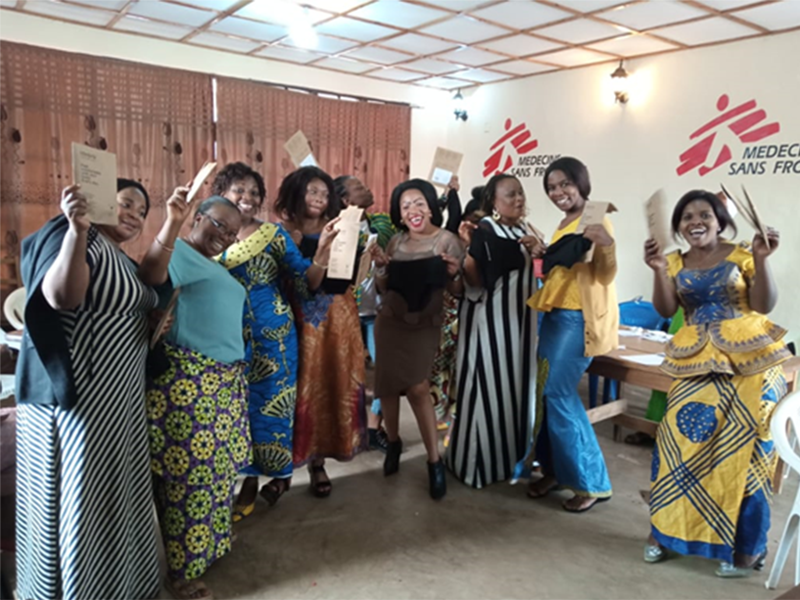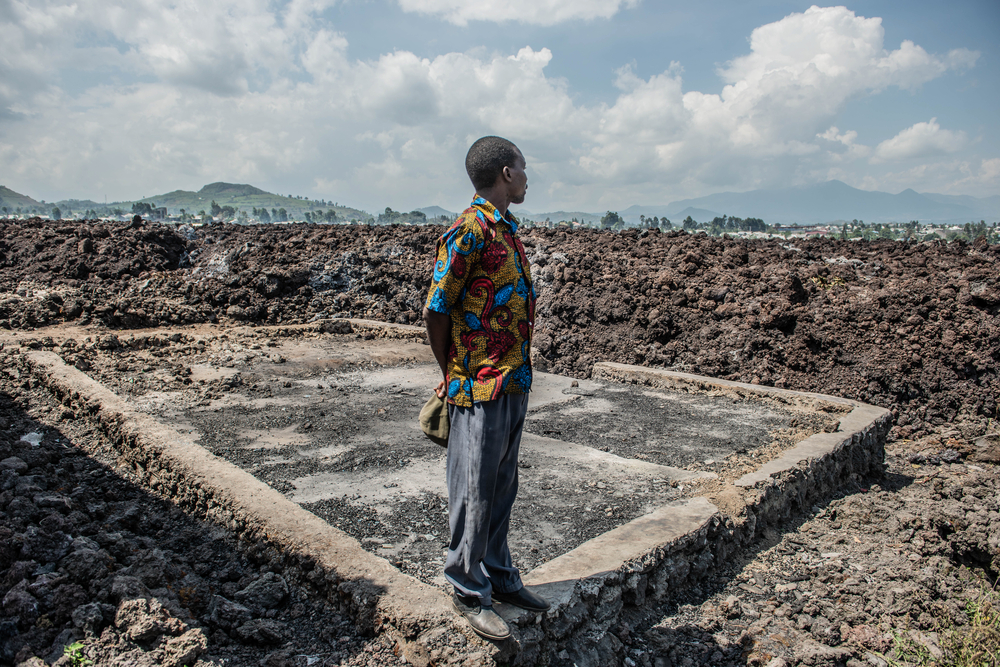The context: South Kivu
"People in DRC have lived through decades of conflict. When violence erupts, people have few options but to flee, leaving behind their homes and livelihoods, and often find themselves living in temporary camps with little access to basics like clean water, toilets and medical care. There are over five million people who have been internally displaced like this in DRC. Around 400,000 of these people live in South Kivu, of whom over 50 per cent are women.
"Although there has been some work addressing menstrual hygiene in humanitarian responses, there is a very limited body of evidence on adequate menstrual products in the context of displacement. Menstrual hygiene is part of reproductive health, and is a fundamental right and basic need that must be considered. The lack of adequate menstrual products and safe spaces to manage menstrual hygiene can cause women great discomfort and anxiety, which can lead to stigma, shame and fear.
"So how do displaced women in DRC deal with menstruation? And could period underwear be usefully introduced in the hygiene kits MSF provides them? All innovation begins with a question and an idea. To test ours, we successfully applied to the Sapling Nursery, an MSF fund that helps teams pilot new approaches that could change how we work for the better.
The first step
"A team of Congolese staff in Bukavu city, South Kivu, provide technical and administrative support to MSF projects in the region. We approached the female members of the team with a request: would they participate in the project, and be the first to assess the period underwear? They received the idea with enthusiasm, and this is how our first pilot began.
"Every context that MSF works in is different. Although people living through humanitarian crises might have similar needs which can be met with comparable solutions, it’s vital to understand the culture you’re working within in order to develop appropriate solutions.
"That’s why we spent a morning session with our Bukavu colleagues, discussing menstruation beliefs and taboos, where we get information about it, our first menstruation experiences and the most common challenges. We learned that one of the key aspects of menstruation for women in DRC is privacy: women don’t want anyone, even other women, to know that they are menstruating.
"We distributed the period underwear to our colleagues, and three months later we got back together to discuss their experiences with the product. The feedback was positive overall. The underwear was comfortable and clean, easy to wear and wash and, most importantly, it tackled the important issue of privacy.
"The next step will be to take this idea to a rural area in South Kivu and run a second pilot with a larger number of participants. If the feedback is positive, a third phase will look at introducing the underwear in MSF’s hygiene kits for displaced women in the province.




